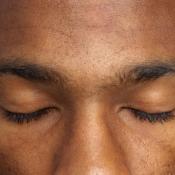 Marsha Linehan’s groundbreaking introduction of dialectical behavior therapy (DBT) through her 1993 treatment and skills training manuals has brought effective therapy to many people living with the symptoms of borderline personality. Linehan worked with women who had histories of suicide attempts, self-harm, frequent experiences of crisis, and difficulty managing intense emotional states. She found that the people she worked with in therapy experienced standard cognitive behavioral therapy as invalidating due to its consistent emphasis on changing thoughts, emotions, and behaviors.
Marsha Linehan’s groundbreaking introduction of dialectical behavior therapy (DBT) through her 1993 treatment and skills training manuals has brought effective therapy to many people living with the symptoms of borderline personality. Linehan worked with women who had histories of suicide attempts, self-harm, frequent experiences of crisis, and difficulty managing intense emotional states. She found that the people she worked with in therapy experienced standard cognitive behavioral therapy as invalidating due to its consistent emphasis on changing thoughts, emotions, and behaviors.
Dialectical behavior therapy is a type of cognitive behavioral therapy that is based on a balance between acceptance of where a person is right now together with the need to push for change to help the person have more effective relationships and manage emotional states. The “dialectical” in its name refers to a philosophy in which seemingly opposing ideas can exist at the same time. We’re constantly balancing needs, values, and ideas that may appear to be opposites. Our task is to find the synthesis in these differing ideas.
A key component of dialectical behavior therapy is skills training, which includes the teaching and application of skills in mindfulness, emotion regulation, interpersonal effectiveness, and distress tolerance.
Mindfulness practice is nothing new—it is a core component of many religious traditions—but increasingly we are able to study and measure its brain benefits.
In the years since Linehan released her first treatment and skills training manuals, DBT has been tried and tested in many settings, including with people who do not have borderline personality but who are living with other mental health conditions such as depression, anxiety, and addictions.
The skills training and treatment model of DBT is applicable to people living with a range of mental health conditions. Practicing mindfulness helps people with and without mental health conditions to improve well-being, attention to the present moment, and increasing positive emotional experiences while decreasing negative emotions and distress. This is why people with depression, bipolar, anxiety, eating disorders, and other mental health conditions may benefit from mindfulness practice and the other skills that form dialectical behavior therapy.
DBT for Depression
Dialectical behavior therapy offers skills specifically designed for people dealing with depressive feelings. DBT empowers people with depression to add positive emotional experiences to their lives in order to have better relationships and experience more joy. DBT includes evidence-based behavior activation skills to give people concrete tools to use when feeling depressed. By knowing what works, people with depression can take charge of their lives and do what they need to feel better.
DBT for Bipolar
People with bipolar often benefit from therapy to help them learn skills for tolerating distress and managing intense emotions. There is such an overlap between the symptoms of borderline personality and bipolar that some experts have proposed that borderline personality be considered part of the bipolar spectrum. People with bipolar often benefit from help managing stressors that can increase vulnerability to depression and mania.
DBT for Anxiety
Dialectical behavior therapy gives people skills to live in the present moment and to observe, alter the intensity of, and change feeling states. People with anxiety benefit from being able to tolerate intense feelings and modify behaviors in order to create new emotional experiences. Mindfulness skills in DBT give people with anxiety the tools to set aside worries about the past or future in order to address what is happening in their lives right now.
DBT for Addictions
The new DBT skills manual, published in 2014, includes a section on skills for tolerating distress in people with addictions. Linehan includes in this category not only people with addictions to alcohol and other drugs, but also people who are addicted to gambling, sex, shopping, and more. The skills are based on a philosophy of dialectical abstinence, which uses the understanding that harm reduction and abstinence are both important and can coexist on an individual’s path to recovery.
DBT for Eating Disorders
People with eating disorders benefit from skills to regulate intense emotions and to pick up on trigger emotions that lead to behaviors that cause problems. DBT views food restriction and binging and purging as attempts to manage painful feelings. The skills training component of DBT offers new skills to regulate these difficult feelings.
Dialectical behavior therapy is based on learning theory and is not diagnosis-specific. People with a wide range of problems have found DBT helpful. If you think DBT may be for you, don’t delay in seeking out a therapist trained to offer this effective evidence-based treatment.

The preceding article was solely written by the author named above. Any views and opinions expressed are not necessarily shared by GoodTherapy.org. Questions or concerns about the preceding article can be directed to the author or posted as a comment below.

 Should We Abolish the Diagnosis of Borderline Personality?
Should We Abolish the Diagnosis of Borderline Personality? The Importance of Validation in Dialectical Behavior Therapy
The Importance of Validation in Dialectical Behavior Therapy Core Mindfulness in Dialectical Behavior Therapy
Core Mindfulness in Dialectical Behavior Therapy

Please fill out all required fields to submit your message.
Invalid Email Address.
Please confirm that you are human.
Leave a Comment
By commenting you acknowledge acceptance of GoodTherapy.org's Terms and Conditions of Use.